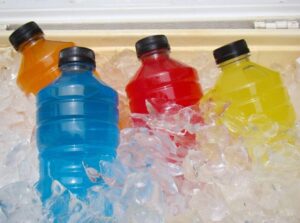It has come to our attention that growers are using on old self audit checklist for their 2024 audit. According to USDA the old form was not acceptable after April 30, 2024! The USDA released the new Harmonized GAP Standard and Harmonized Plus+ Standard Audits in March to give growers the opportunity to update their plans. There are several changes related to section numbers and deleted numbers so if you have your audit plan setup by section number check to make sure they have not changed. Also, eight questions have been added. Following is a summary of those questions:
- G 2.4 – Approved service provider list required (the grower approves the list)
- G 7.2 – A designated recall team is required
- G 7.3 – Must perform a mock recall exercise annually
- G 11.5 – Must have labels and instructions for any water treatment chemical used
- G 11.8 – Compressed air or other gases contacting food or food contact surfaces must be maintained
- F 6.3 – Must have a procedure for storing and handling growing media (e.g., perlite, peat, rock wool, etc.)
- F 9.4 – Re-used water must be treated with a labeled product
- P 5.2 – A master cleaning schedule with standard operating procedures (SOP) must be established
There are two documents for each audit: Harmonized GAP Standard (v 3.0) or Harmonized GAP Plus+ standard (v 5.0). Each audit has a corresponding checklist “Harmonized GAP Combined Checklist (v6.1)” This is the checklist a grower should be using to their self-audit. Remember an older version will not be accepted which means the audit fails. Go to the Rutgers On-Farm Food Safety website an look under the USDA Audits tab or go to Harmonized GAP | Agricultural Marketing Service (usda.gov) to download the correct versions.
 Article By: The Rutgers Farm Health and Safety Working Group: Kate Brown, Michelle Infante-Casella, Stephen Komar and William Bamka
Article By: The Rutgers Farm Health and Safety Working Group: Kate Brown, Michelle Infante-Casella, Stephen Komar and William Bamka